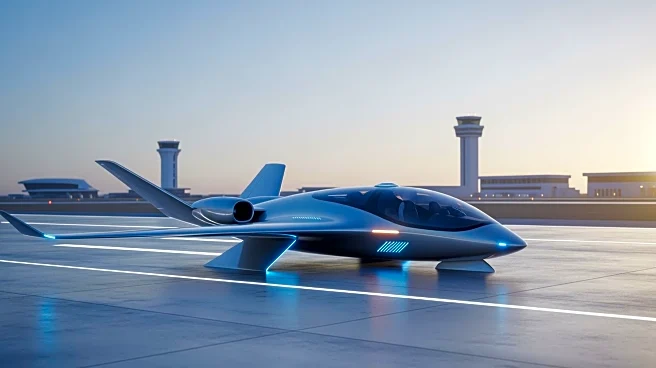What's Happening?
Joby Aviation and L3Harris Technologies have conducted their first test flight of an autonomous hybrid vertical takeoff and landing aircraft, aiming to sell it to the Defense Department. The electrically powered VTOL builds on Joby's previous experiments
with air taxi aircraft, delivered to the Air Force for testing in 2023. L3Harris will modify the commercial version for defense applications, adding sensors, communications systems, and technology for collaborative autonomous flight. The aircraft's ability to take off and land vertically allows deployment from locations without traditional runways.
Why It's Important?
The development of autonomous electric aircraft represents a significant advancement in defense technology, with potential applications in logistical missions and low-altitude support. The partnership between Joby and L3Harris highlights the growing importance of unmanned systems in military operations. The aircraft's capabilities could enhance operational flexibility and efficiency, particularly in contested environments. The focus on autonomous flight technology reflects a shift in defense strategies, emphasizing innovation and adaptability. The implications for U.S. defense procurement and operational strategies are profound, as the technology could influence future military operations.
What's Next?
Operational demonstrations of the VTOL aircraft are expected to begin in 2026, proving its capability to carry out government missions. Until then, the aircraft will undergo ground and flight testing at Joby's facility. The partnership may lead to further technological developments and collaborations, potentially influencing future defense procurement and operational strategies. The focus on autonomous flight technology suggests a shift in military strategies, emphasizing flexibility and adaptability.
Beyond the Headlines
The ethical implications of autonomous flight technology include considerations of safety, accountability, and the potential for increased militarization. The cultural impact of international collaborations in defense technology may influence perceptions of national security and technological innovation. The long-term shifts could involve changes in global defense strategies and the role of unmanned systems in military operations.















